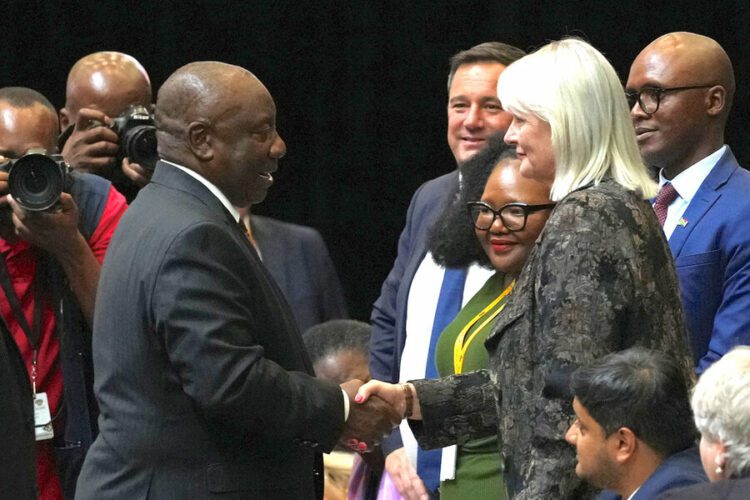The French call it “cohabitation.” When their country holds a parliamentary election in a few weeks, voters in France may hand control of the National Assembly to opponents of President Emmanuel Macron. Divided government – a president from one party, a prime minister from another – is rare in France. If it does happen, the European nation can turn for encouragement to a new model – in South Africa.
Last Friday, South Africa saw its first coalition government in three decades after voters used an election in May to deprive the once-dominant party, the African National Congress, of its long-held majority. The new government – a team of rivals between the ANC and two other parties – shows how adversaries can forge unity and trust through a shared respect for voter preferences on issues.
“Winner-take-all politics threatens to deepen polarisation and undermine national cohesion,” wrote Marie-Noelle Nwokolo, a researcher at The Brenthurst Foundation in Johannesburg. “The lessons from South Africa’s May 2024 election are clear: the maturity of democracy hinges on the active participation of an informed electorate, the integrity of the electoral process, and the willingness of political leaders to collaborate for the common good.”
Those ingredients of democracy are hard to come by in southern Africa. Over the past half-century, the political movements that ousted foreign or minority rule in the region have clung to power through patronage and ballot fraud. That trend has now been broken in South Africa – not by conflict or mass demonstrations, but through humility and a rejection of cynicism.
Elsewhere in Africa, corruption, unemployment, and crumbling services have eroded faith in democracy, particularly among young Africans. Yet in South Africa, citizens between the ages of 20 and 29 accounted for up to 77% of new voter registrations. Their ballots brought change.
In last month’s election, the ruling ANC fell short of 50% of the vote for the first time since the end of white-only rule in 1994. The party chose not to partner with parties fueled by race-based resentments or that were tainted by mass corruption. Instead, it teamed up with its main rival, the historically white Democratic Alliance, which advocates for achieving equality through free-market economics.
What the parties in the coalition share, their leaders stated in the framework for governing together, is recognition that “the people of South Africa expect us to work together … in a new era of peace, justice and prosperity for all.”
At rare intervals in the life of a nation, “there occurs a transformation so remarkable that a molt seems to take place, and an altered country begins to emerge,” historian Doris Kearns Goodwin once observed. If the coalition holds together in making reforms, South Africans may have reached such a moment through a citizen-led renewal of democratic values.
That provides a calming example for other countries contemplating new power-sharing arrangements, as in France. As the French political scientist Alain Garrigou has noted, “Despite the conflictual nature of cohabitation, the major fear of an impossibility to govern has not been borne out.”
Source link : https://www.csmonitor.com/Commentary/the-monitors-view/2024/0617/South-Africa-s-calming-political-center
Author :
Publish date : 2024-06-17 19:34:23
Copyright for syndicated content belongs to the linked Source.
